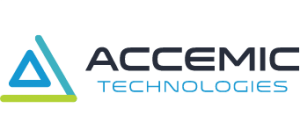
PROJECTS
AND PARTNERS
Due to their unique and groundbreaking methods, Accemic Technologies is a key partner in several research projects.
CoCoSI
“Code coverage for system and integration tests”
Together with our project partners Fraunhofer IESE, HEICON – Global Engineering and Intel we are conducting an in-depth investigation of measuring structural test coverage in integrated systems in the “CoCoSI” research project (BMBF KMU Innovativ, FKZ 01IS19044).
Safety-critical embedded systems are becoming more and more important in the life of everyone as can be seen in the future market entry of autonomous vehicles. The development and certification of such systems are very costly; the necessary quality assurance consumes about 50% of the project resources.
The CoCoSI project is developing a solution that improves the quality and reliability of these systems.
The continuous and non-intrusive measurement of the test coverage (code coverage), allows to check the completeness of requirements-based tests at higher test levels. The structural tests required for certification can already be performed during the execution of system and integration tests. In addition, some of the module tests that were previously necessary to prove complete test coverage can be dispensed with.
The new test solution will be validated on the basis of industrial case studies from the fields of aviation and autonomous driving.


ARAMiS 2
“Automotive Railway Avionics Multicore Systems”
Safety-critical applications in the domains automotive and avionics as well as the future topic Industry 4.0 show a clear and still increasing demand for digital processing power. This demand for processing power is needed, e.g., for highly automated driving and connected machines with real-time requirements. Furthermore, this demand is substantiated by an increasing interaction and integration with other systems and services. This justifies the usage of multi-core technology in embedded systems in the near future, which is already successfully applied in other application domains like PCs, tablets and smartphones. However, safety-critical applications have many additional complex requirements, which at present can, if at all, only be fulfilled partly with an unjustifiable huge development effort.
ARAMiS II creates the necessary methodological prerequisites to increase safety, efficiency and comfort in the deployment of multi-core technologies and make them available at an industrial scale. “The results of ARAMiS II are supplementary to standardization activities of the domains concerned and are thus will be made available to other industry partners”, the project coordinator Jürgen Becker said.
Within ARAMiS II, Accemic Technologies has developed a domain-specific adaptation of its online multi-core monitoring technology, which enables the continuous, non-intrusive observation of the execution of release code.
The consortium of ARAMiS II consists of leading OEMs of the domains automotive, avionics and the industry sector including their suppliers as well as software- and tool-vendors and renowned research organizations
COEMS
“Continuous Observation of Embedded Multicore Systems”
Within the Horizon 2020 project “COEMS”, a novel platform for online monitoring of multi-core systems was developed by the project partners Accemic Technologies (DE), Airbus (DE), Thales (AT, RO), Høgskulen på Vestlandet (NO) and Universität zu Lübeck (DE).
It gives insight to the system’s behavior without affecting it. This insight is crucial to detect non-deterministic failures as for example caused by race conditions and access to inconsistent data.
A system-on-chip is observed using the tracing capabilities available on many modern multi-core processors. They provide highly compressed tracing information over a separate tracing port. From this information, the COEMS system reconstructs the sequence of instructions executed by the processor. This sequence can then be analyzed online by a reconfigurable monitoring unit. It monitors constraints that are compiled from a high-level temporal stream-based specification language (TeSSLa). To cope with the amount of tracing data generated by modern processors, the COEMS system is implemented in hardware using an FPGAs.

Embedded4You
We are proud to be part of Embedded4You (E4Y) – the leading competence network for embedded technologies. Together with our network partners and thus the access to 2000 experienced engineers in more than 30 companies, we are able to realize sophisticated interdisciplinary embedded projects for our customers.
By joining our expertise, each partner can concentrate on their own core competence and, if necessary, access the technology and know-how of other members at any time. In this combination, innovative products can be offered both individually and as part of a comprehensive overall solution.
Every single company in E4You network has excellent, deep industry knowledge and many years of project experience. The very close cooperation and continuous exchange of knowledge lead to higher product quality, more flexibility and greater customer satisfaction.

EUROCAE
Accemic Technologies is registered member of EUROCAE.
EUROCAE is the European leader in the development of worldwide recognised industry standards for aviation. EUROCAE develop standards by industry/members for the industry needs that:
– Build upon the state of the art expertise of its members and address the global aviation challenges.
– Are fit for purpose to be adopted internationally.
– Support the operational, development and regulatory processes

We are winner of WECONOMY
Accemic Technologies convinced the top-notch jury at the renowned startup contest WECONOMY of its online observation solution for embedded systems

First WECONOMY weekend (from left to right): Alexander Weiss (CEO of Accemic Technologies GmbH), Franz Fehrenbach (Chairman Robert Bosch GmbH), Michael Bolle (Chairman management of research and development Robert Bosch GmbH), Alexander Lange (CTO of Accemic Technologies GmbH) in conversation [© Wissensfabrik/Karin Ries]


